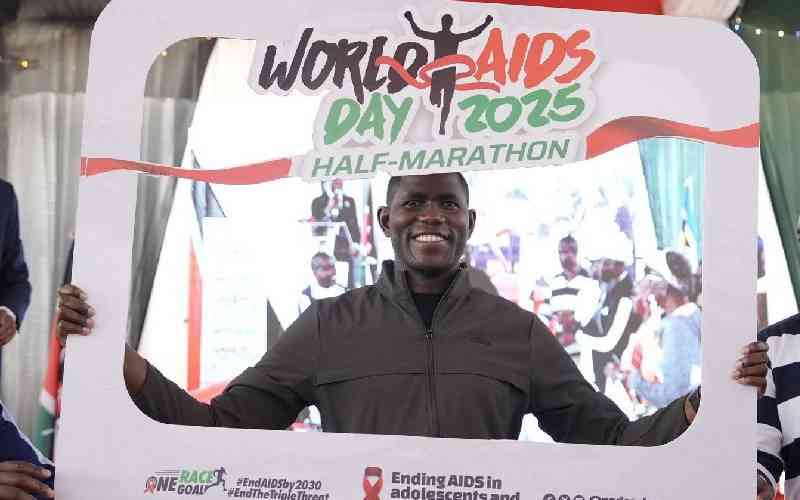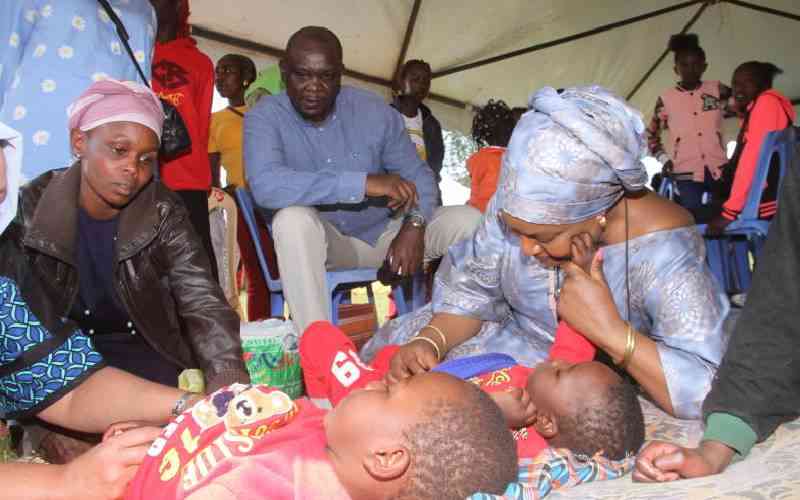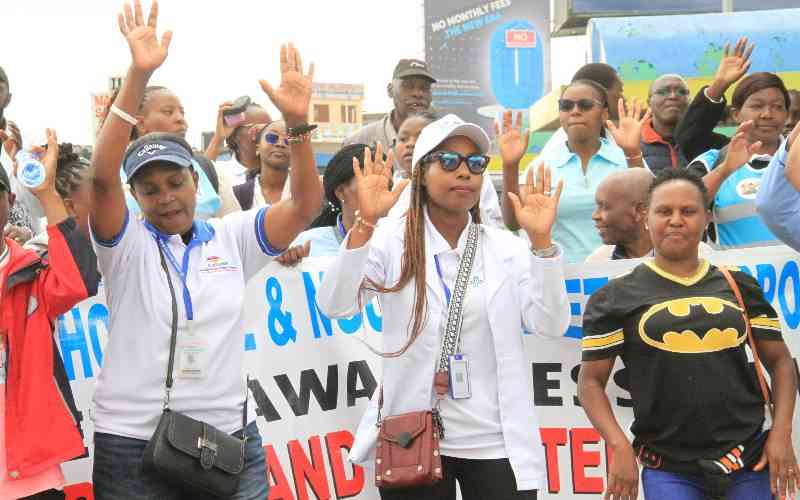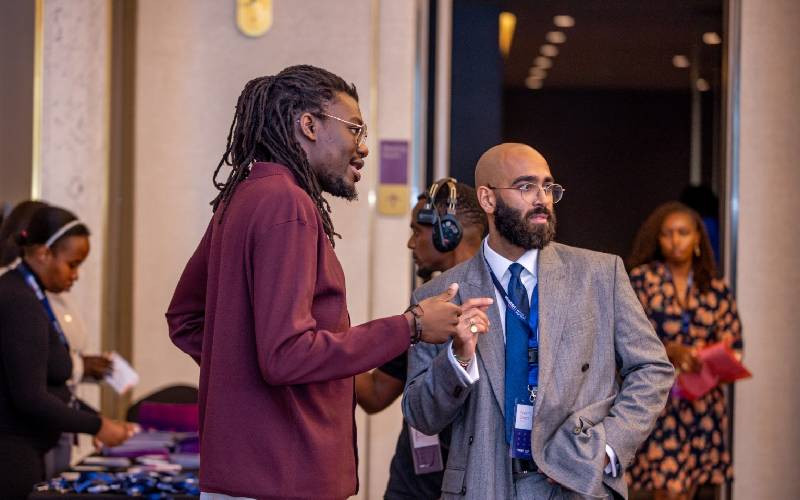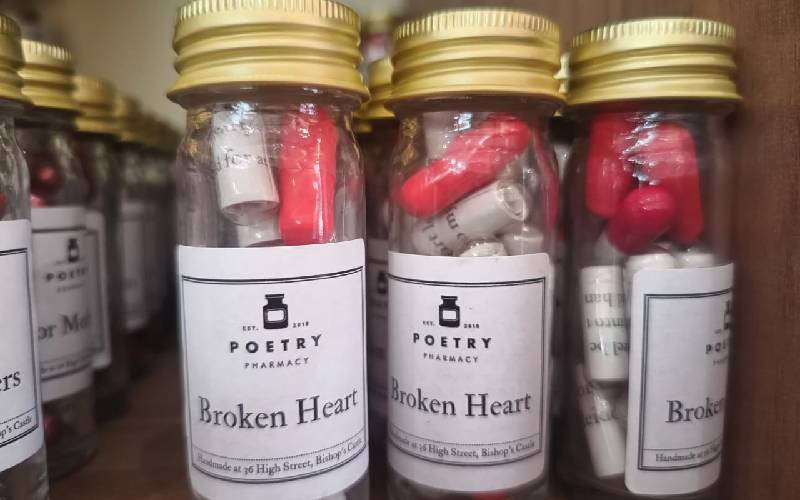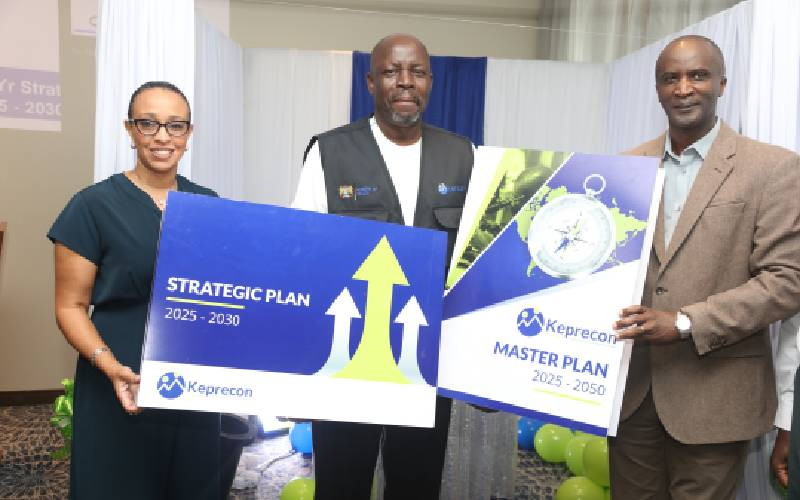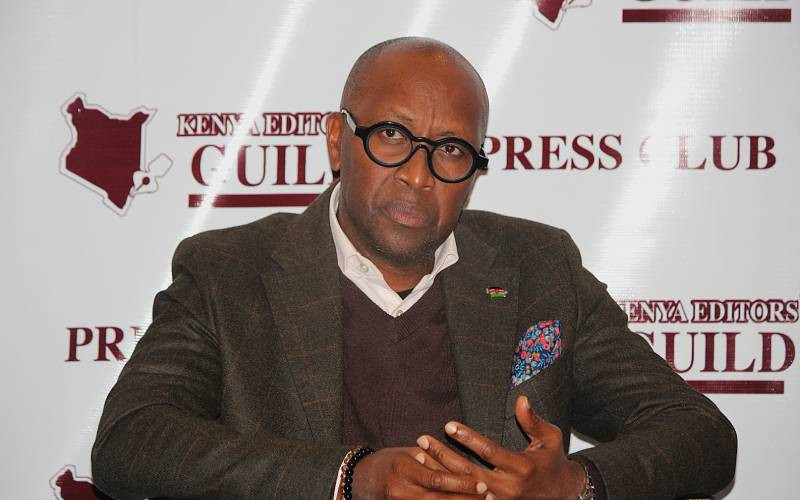
AMREF Health Africa Director Dr Githinji Gitahi. [Benard Orwongo, Standard]
Healthcare practitioners are calling for reforms in Kenya’s healthcare system to protect it from the impact of declining Official Development Assistance (ODA).
Speaking during the Kenya Editors’ Guild Thought Leadership Series on Thursday, July 24, which focused on the impact of ODA cuts on health and development in Africa, experts urged the government to prioritise funding for HIV, tuberculosis, and family planning programs.
“We must refocus and recognise that these programmes that re critical for social and economic development. The government must allocate money for them,” said AMREF Health Africa Director Dr Githinji Gitahi
Gitahi noted the importance of building public health institutions, describing them as the backbone of healthcare in Kenya, adding that private hospitals should complement, not replace, the public system.
“We know that in this country, the best services in terms of quality exist in the public sector. The best quality assurance is in the public, even as we talk about having all public servants use public hospitals, it should be a better place and equal for all,” he explained.
Dr Rose Oronje of the African Institute for Development Policy (AFIDEP) attributed the crisis partly to a lack of accountability in how donor funds have been used.
we are heavily dependent on external about 40 percent or more, meaning we are overly dependent, but if we change how we spend on health, we will spend less this is by changing lifestyle and how we look and health as a community,’’She noted.
- Experts warn of rising TB threat in Kenya as donor support declines
- Donors have taken a step back; can we now step forward?
Keep Reading
“We’re heavily reliant on external funding, about 40 percent or more. That makes us vulnerable. But if we rethink how we invest in health, we will spend less by changing lifestyles and how we look and health as a community,” she said.
Kenya has felt the impact of donor withdrawal this year, after US President Donald Trump’s decision to slash foreign aid.
The move led to the temporary suspension of programs funded by agencies such as the President’s Emergency Plan for AIDS Relief (PEPFAR), which has been a major supporter of Kenya’s HIV response since 2014.
Trump also withdrew the US from the World Health Organisation (WHO), accusing it of mismanaging the COVID-19 pandemic and spreading disinformation, which he claimed worsened the outbreak.
ODA support has been steadily declining. In 2024, assistance fell to nine (9) percent, and the Organisation for Economic Co-operation and Development (OECD) projects a further drop of 9 to 17 percent in 2025.
The decline follows major ODA cuts announced by key donors, including France, Germany, the United Kingdom, and the United States.
Speaking during the Kenya Editors’ Guild Thought Leadership Series on Thursday, July 24, which focused on the impact of ODA cuts on health and development in Africa, experts urged the government to prioritise funding for HIV, tuberculosis, and family planning programs.
“We must refocus and recognise that these programmes that re critical for social and economic development. The government must allocate money for them,” said AMREF Health Africa Director Dr Githinji Gitahi
Gitahi noted the importance of building public health institutions, describing them as the backbone of healthcare in Kenya, adding that private hospitals should complement, not replace, the public system.
“We know that in this country, the best services in terms of quality exist in the public sector. The best quality assurance is in the public, even as we talk about having all public servants use public hospitals, it should be a better place and equal for all,” he explained.
Dr Rose Oronje of the African Institute for Development Policy (AFIDEP) attributed the crisis partly to a lack of accountability in how donor funds have been used.
we are heavily dependent on external about 40 percent or more, meaning we are overly dependent, but if we change how we spend on health, we will spend less this is by changing lifestyle and how we look and health as a community,’’She noted.
“We’re heavily reliant on external funding, about 40 percent or more. That makes us vulnerable. But if we rethink how we invest in health, we will spend less by changing lifestyles and how we look and health as a community,” she said.
Kenya has felt the impact of donor withdrawal this year, after US President Donald Trump’s decision to slash foreign aid.
The move led to the temporary suspension of programs funded by agencies such as the President’s Emergency Plan for AIDS Relief (PEPFAR), which has been a major supporter of Kenya’s HIV response since 2014.
Trump also withdrew the US from the World Health Organisation (WHO), accusing it of mismanaging the COVID-19 pandemic and spreading disinformation, which he claimed worsened the outbreak.
ODA support has been steadily declining. In 2024, assistance fell to nine (9) percent, and the Organisation for Economic Co-operation and Development (OECD) projects a further drop of 9 to 17 percent in 2025.
The decline follows major ODA cuts announced by key donors, including France, Germany, the United Kingdom, and the United States.
 The Standard Group Plc is a multi-media organization with investments in media
platforms spanning newspaper print
operations, television, radio broadcasting, digital and online services. The
Standard Group is recognized as a
leading multi-media house in Kenya with a key influence in matters of national
and international interest.
The Standard Group Plc is a multi-media organization with investments in media
platforms spanning newspaper print
operations, television, radio broadcasting, digital and online services. The
Standard Group is recognized as a
leading multi-media house in Kenya with a key influence in matters of national
and international interest.



